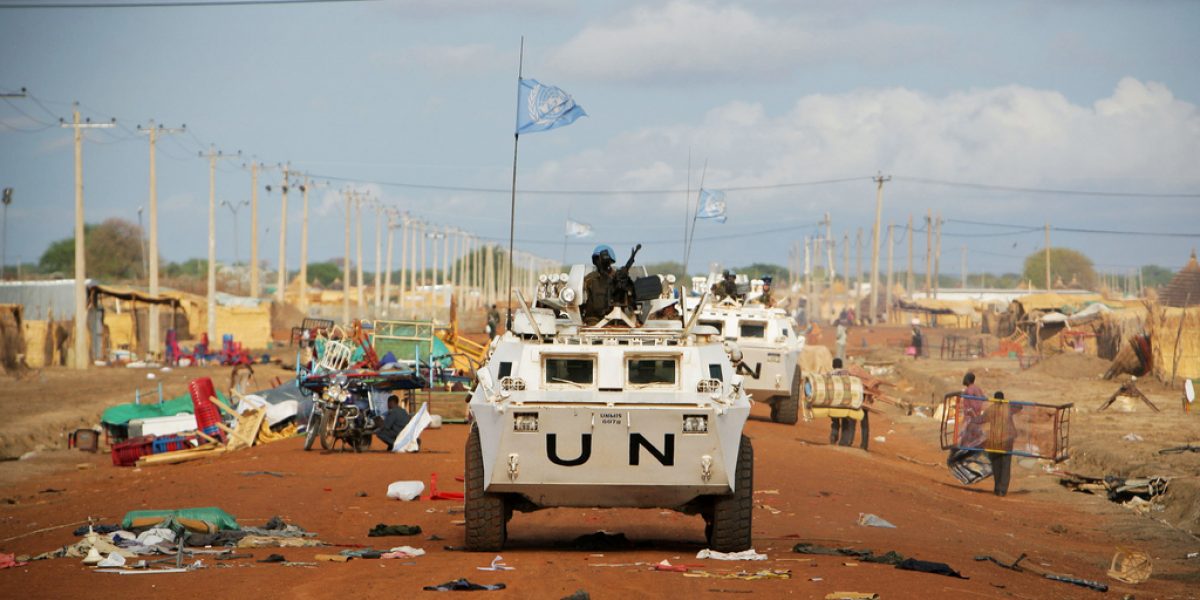Resolution 1547, adopted on November 19, called on Khartoum, rebels and armed forces to cease all violence in Darfur, western Sudan. The only positive outcome was the signing of a memorandum of understanding by the Sudanese People’s Liberation Movement (SPLM/A) and the Khartoum government. Both sides promised to complete peace talks by December 31, but only time will tell how genuine the promises are.
No mention was made of sanctions or the previous two resolutions for the government to disarm the Janjaweed militia, which is allegedly committing brutal attacks on civilians, prompting some humanitarian agencies to call Darfur the worst humanitarian crisis in the world .
They argue that the resolution focuses only on the north-south dimension of the conflict rather than Darfur. Blame for lack of action and watering down of the resolution has been placed partially on Russia and China. These permanent council members have big investments in Sudanese oil, and have gone to great lengths to protect their investments. Beijing has been Khartoum’s main arms supplier since 1994 in return for oil concessions. Russia provided MIG-29 fighters and established a T-72 tank factory in Khartoum. In exchange, China and Russia used the threat of their security council veto to block sanctions or a tougher stance on Sudan.
The Darfur crisis is a microscopic reflection of the divisions and violence that have traditionally wreaked havoc in Sudan. Civil war between various Khartoum governments, the Anya Anya, other rebel groups and armed factions from the south have characterised the political scene since Sudan’s independence in 1956. The southerners initially took up arms to attain self-determination and end their racial, cultural and religious subordination by the north. But the discovery of oil in 1978 and the forced removal of southerners from oil-rich areas to permit oil exploration changed the complexities of the civil war.
Ten years of peace (1972-82) ended with the imposition of sharia (Islamic law) on all Sudan in 1983. This merged state and religion, and for the non- Muslim, mainly Christian and animistic south this was a further violation of rights alongside forced removals due to oil. Despite leadership changes, the way Khartoum traditionally conducts its affairs with the south has not changed.
The key issue is one of the marginalisation and dispossession of southerners. Though 80% of the oilfields are in the south, it remains one of Africa’s most underdeveloped regions. Oil has been a key stumbling block in peace agreements between the government and the SPLM/A.
Both continuously disagree on demarcation of oil-rich territories such as Abeyi. While oil revenue makes up 40% of Sudan’s gross domestic product, most oil revenue goes to military programmes. Khartoum also uses oil as a bargaining chip in seeking funds from allies.
Oil and weapons are not the only reason why countries such as Russia, China and other nonpermanent members of the security council, such as Algeria and Pakistan, have shown solidarity with the Sudanese government. The poor human rights record of some of these states contributes to their reluctance to put rights violations at the centre of the debate.
Despite the development of signing the memorandum of understanding, one wonders how long the understanding will last. Talks on a north-south peace deal have gone on for two years.
Despite breakthrough on self-governance for the south, a government of national unity and redistribution of wealth, these were undermined by the Darfur violence, which added another layer to the complex conflict. Resolution 1574 is insufficient to address the Darfur crisis, which needs to be dealt with in an inclusive way that helps stabilise the country lest in addition to the north-south divide a west-north divide erupts.








